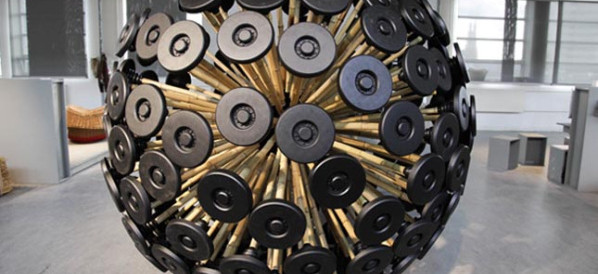 20 Terms
20 TermsHome > Terms > English, UK (UE) > Battle of Naissus
Battle of Naissus
The Battle of Naissus (268 or 269 AD) was a battle between the Roman Empire under Emperor Gallienus and a coalition of Gothics near Naissus. It was a decisive victory for Rome. The events around the invasion and the battle are an important part of the history of the Crisis of the Third Century.
The result was a great Roman victory which, combined with the effective pursuit of the invaders in the aftermath of the battle and the energetic efforts of the Emperor Aurelian, largely removed the threat from Germanic tribes in the Balkan frontier for the following decades.
Between 267 and 269 two massive invasions of "Scythian" tribes into Roman territory took place. The first wave came during the reign of Gallienus in 267 and started when the Heruli, raiding on 500 ships, ravaged the southern Black Sea coast and unsuccessfully attacked Byzantium and Cyzicus. They were defeated by the Roman navy but managed to escape into the Aegean Sea, where they ravaged the islands of Lemnos and Scyros and sacked several cities of the southern Greece province of Achaea, including Athens, Corinth, Argos, and Sparta. Then an Athenian militia, led by the historian Dexippus, pushed the invaders to the north where they were intercepted by the Roman army under Gallienus. He won an important victory near the Nessos (Nestos) river, on the boundary between Macedonia and Thrace, with the aid of the Dalmatian cavalry. Reported barbarian casualties were 3,000 men. Subsequently, the Heruli leader Naulobatus came to terms with the Romans.
Gallienus was assassinated outside Milan in the summer of 268 in a plot led by high officers in his army. Therefore Claudius was proclaimed emperor and headed to Rome to establish his rule. Claudius' immediate concerns were with the Alamanni, who had invaded Raetia and Italy. After he defeated them in the Battle of Lake Benacus, he was finally able to take care of the invasions in the Balkan provinces.
In the meantime, the second and larger sea-borne invasion had started. They entered the Aegean Sea and a detachment ravaged the Aegean islands as far as Crete and Rhodes. While their main force had constructed siege works and was close to taking the cities of Thessalonica and Cassandreia, it retreated to the Balkan interior at the news that the emperor was advancing. On their way, they plundered Doberus and Pelagonia.
The Goths were engaged near Naissus by a Roman army advancing from the north. The battle most likely took place in 269, and was fiercely contested. Large numbers on both sides were killed but, at the critical point, the Romans tricked the Goths into an ambush by pretended flight. Some 50,000 Goths were allegedly killed or taken captive. It seems that Aurelian, who was in charge of all Roman cavalry during reign of Claudius, led the decisive attack in the battle.
Because of this victory Claudius became known to posterity as Claudius II Gothicus ("conqueror of the Goths"). However devastating the defeat, the battle did not entirely break the military strength of the Gothic tribes. Besides, the troubles with Zenobia in the East and the breakaway Gallic Empire in the West were so urgent that the victory at Naissus could only serve as a temporary relief for the troubled Empire. In 271, after Aurelian repelled another Gothic invasion, he abandoned the province of Dacia north of the Danube in order to rationalise the defence of the Empire. Rome would never reconquer Dacia.
- Part of Speech: proper noun
- Synonym(s):
- Blossary:
- Industry/Domain: History
- Category: Ancient history; Ancient Rome
- Company:
- Product:
- Acronym-Abbreviation:
Other Languages:
Member comments
Terms in the News
Featured Terms
Mine Kafon
A Mine Kafon is a wind-powered device designed to trip landmines as it rolls across the ground. Each ball costs $50 and looks like a starburst, with a ...
Contributor
Featured blossaries
Browers Terms By Category
- Organic chemistry(2762)
- Toxicology(1415)
- General chemistry(1367)
- Inorganic chemistry(1014)
- Atmospheric chemistry(558)
- Analytical chemistry(530)
Chemistry(8305) Terms
- Biochemistry(4818)
- Molecular biology(4701)
- Microbiology(1476)
- Ecology(1425)
- Toxicology(1415)
- Cell biology(1236)
Biology(22133) Terms
- Ceramics(605)
- Fine art(254)
- Sculpture(239)
- Modern art(176)
- Oil painting(114)
- Beadwork(40)
Arts & crafts(1468) Terms
- Capacitors(290)
- Resistors(152)
- Switches(102)
- LCD Panels(47)
- Power sources(7)
- Connectors(7)





